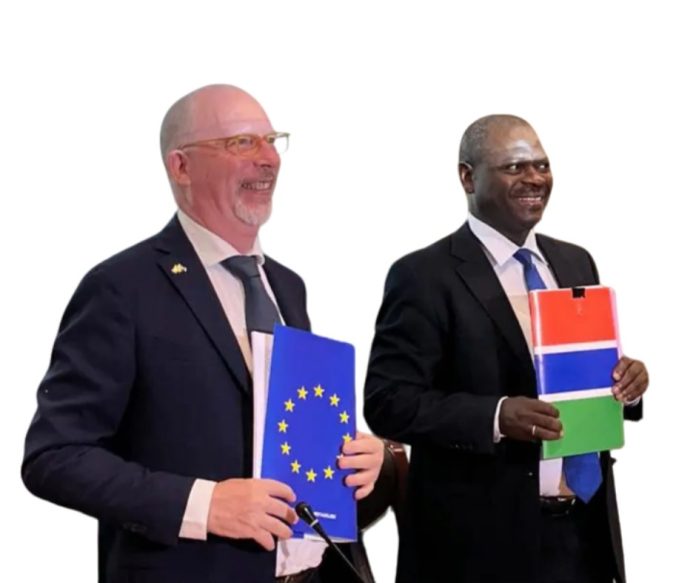On Tuesday, the European Union and the Government of the Gambia executed a new financing agreement worth 10 million Euros, which is equivalent to D760,000 million. The purpose of this agreement is to promote youth employment in the tourism and creative industries.
This initiative is dedicated to the development of employment opportunities, the improvement of skills training, and the promotion of entrepreneurship, among other objectives.
The SDKJ-ICC was the site of the signing ceremony, which was witnessed by government officials, representatives from the EU, and the international trade center. This collaborative endeavor represents a substantial stride toward a more promising future for the young of the Gambia.
This program is a component of the EU’s Annual Action Plan 2023 and seeks to enhance the competitiveness, inclusiveness, and sustainability of the tourism and creative sectors in The Gambia by addressing the priority of “Green economy for sustainable growth and jobs” in the Multi-Annual Indicative Programme for the Gambia (MIP 2021-2027).
The financing agreement will concentrate on the productive sectors of the country that are essential for the Gambia’s development, such as the new initiative “EU YEP Tourism and creative industries.”
The significance of this partnership in fostering economic growth and alleviating destitution is underscored by EU representatives and Gambian officials. The initiative is anticipated to provide thousands of young Gambians with the resources and opportunities required to contribute to the nation’s development.
Seedy Keita, the Minister of Finance, expressed her appreciation for the EU’s assistance in the country’s transition process, which was characterized by pertinent and impactful interventions. “I reiterate the government’s dedication to our collaborative endeavors to address poverty and other societal ills that persist in our nation.”
The International Trade Center (ITC) is responsible for the implementation of this signed agreement. The objective of these investments is to strengthen public services, increase the country’s economic resilience, and contribute to the creation of opportunities for sustainable development.


